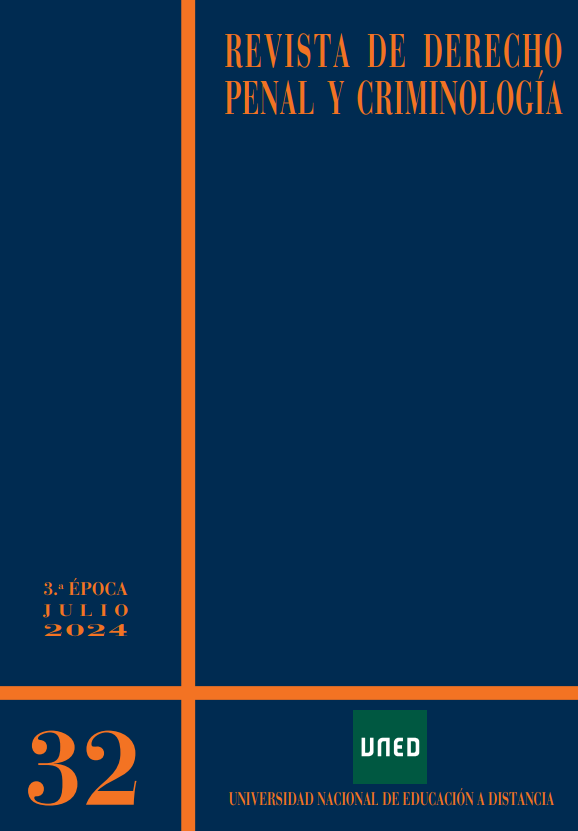The implementation and management of behavioral criminological counseling in police organizations. A qualitative study
DOI:
https://doi.org/10.5944/rdpc.JULIO.2024.39937Keywords:
Criminal profiling, Behavioural analysis, criminal behaviour, police investigation, criminal psychologyAbstract
During the police investigation process, it is essential to understand the crime and the perpetrator’s interaction with the victim and the crime scene. In this context, behavioural criminological counselling is gaining increasing relevance as a fundamental tool for law enforcement agencies. This study adopts a qualitative approach with the aim of examining various dimensions of criminal profiling. In particular, it focuses on the importance of criminal profiling in criminal investigations and the identification of the most appropriate approaches to its implementation in law enforcement institutions. In order to carry out this analysis, a survey of ten experts, both national and international, specialised in the field in question, from a variety of backgrounds, including the private sector and law enforcement agencies, was carried out. The results reveal a wide variety of perspectives on collaboration and the distribution of responsibilities between police crime behaviour analysts and other external specialists. However, they also reveal commonalities in the professional application of criminal profiling.
Downloads
Downloads
Published
How to Cite
Issue
Section
License
Copyright (c) 2024 Revista de Derecho Penal y Criminología

This work is licensed under a Creative Commons Attribution-NonCommercial-NoDerivatives 4.0 International License.
La Revista de Derecho Penal y Criminología de la UNED carece de ánimo de lucro o comercial y está financiada por el Departamento de Derecho penal y Criminología de la UNED.
Todos los artículos se publican en abierto .
Los autores ceden gratuitamente a la Revista los derechos inherentes a la propiedad intelectual imprescindibles para realizar su labor de edición, publicación y difusión.
Los autores están autorizados a depositar en repositorios institucionales o temáticos de acceso abierto la versión publicada de sus artículos (separata en pdf) o el enlace a su artículo en la página de la revista .
Las obras están bajo una Licencia Creative Commons Atribución-NoComercial-SinDerivar 4.0 Internacional.
Se pueden copiar, usar, difundir, transmitir y exponer públicamente, siempre que:
- Se cite la autoría y la fuente original de su publicación (revista, editorial y URL de la obra).
- No se usen para fines comerciales.
- Si se transforma o construye sobre el material, no se puede distribuir el material modificado.







